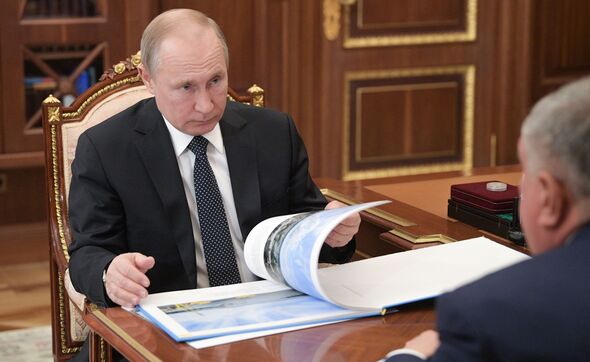The EU’s reliance on a major Russian oil company for gas from Azerbaijan is raising concerns about the bloc’s push to reduce ties with Russian energy.
The European Union‘s energy strategy has come under scrutiny as data reveals that a major Russian oil and gas company stands to gain billions of dollars from a gas field in Azerbaijan, which supplies the EU.
A recent analysis by Global Witness, based on data from Rystad Energy, indicates that Lukoil, Russia‘s second-largest oil producer, is set to make $7 billion in profits over the next decade from the Shah Deniz gas field.
The Shah Deniz field is among the largest gas-condensate projects in the world and currently the only one in Azerbaijan that exports gas to the EU.
Despite European efforts to reduce dependence on Russian gas after the invasion of Ukraine, Lukoil owns a 19.99 percent share in the field, operated by British energy giant BP.
The EU’s 2022 agreement with Azerbaijan’s President Ilham Aliyev to double gas imports has raised concerns about the source of the gas and its beneficiaries. Ursula von der Leyen, President of the European Commission, signed the deal to increase EU imports from Azerbaijan to reduce reliance on Russian energy.
However, this agreement also allows Lukoil, with its significant stake in the Shah Deniz field, to profit significantly from the European energy market.
Global Witness’s senior fossil fuels campaigner, Dominic Eagleton, criticized the EU’s approach, stating that supporting Lukoil not only funds Russia‘s war efforts but also benefits Azerbaijan’s authoritarian regime.
“Buying Russian gas funds the Kremlin’s war in Ukraine directly – but buying Azeri gas from Lukoil strengthens one of Russia’s largest fossil fuel giants and lines the pockets of the Azeri dictatorship, which stands accused of ethnic cleansing,” Eagleton said.
He urged the EU to take urgent action, warning: “The more gas the EU buys, the more these threats to global peace and security will proliferate. We need urgent action to phase gas out in the EU by 2035.”
The projected profits for Lukoil from 2024 to 2033 highlight the complexity of the EU’s energy shift. Lukoil is Azerbaijan’s third-largest gas producer and was responsible for 15 percent of the country’s output when the EU deal was signed.
While the EU has imposed sanctions on some Russian companies, Lukoil has so far been exempt, despite its significant contributions to Russian state revenues, which are being used to fund the war in Ukraine.
Lukoil has previously clarified its position, stating: “Lukoil is an international privately-owned company with no state stake. It does not participate in any political process in any country of its presence.” The company has expressed concern about the conflict in Ukraine, with its board of directors issuing a statement in March 2022 calling for “soonest termination of the armed conflict”.
The EU’s deal with Azerbaijan has already increased gas exports to the EU from 8.1 billion cubic metres (bcm) in 2021 to 11.4 bcm in 2022, with a projected 11.6 bcm in 2023. Despite these increases, the EU faces criticism for potentially facilitating Russia‘s war efforts while attempting to cut ties with Russian energy.
